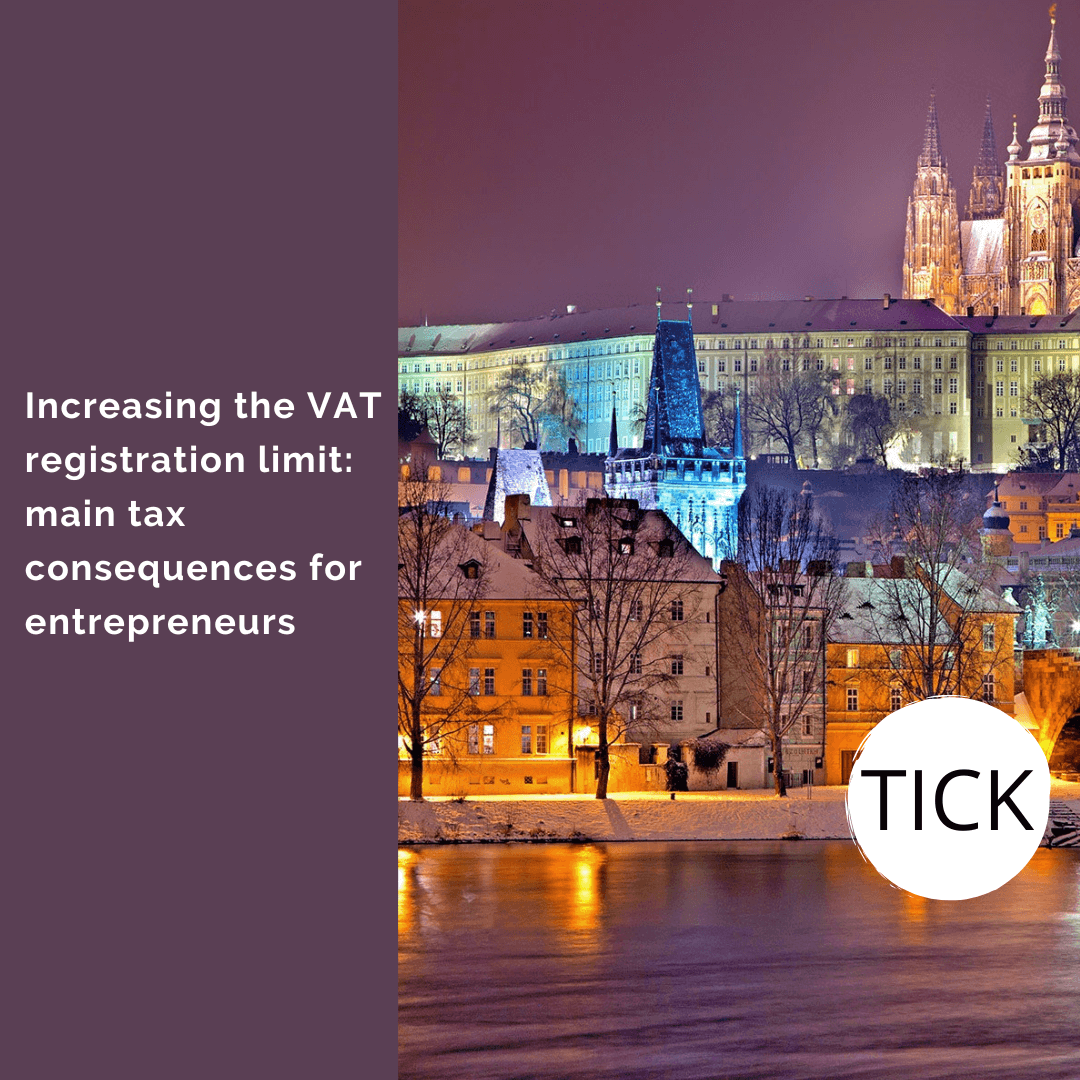The government has prepared tax changes aimed at simplifying tax obligations for entrepreneurs next year, while proposing to extend the extraordinary tax depreciation regime until 2022 and 2023.
The Ministry of Finance has prepared an amendment to the VAT Act, the Income Tax Act and other related acts. The most important changes are the increase of the annual limit of obligatory VAT registration from CZK 1 million to CZK 2 million and the increase of the annual income limit for the application of the flat-rate tax system.
Increasing the VAT registration limit to CZK 2 million
The draft amendment to the VAT Act increases the annual turnover limit for registration as a VAT payer to CZK 2 million. This is in line with the increased limit of the amended VAT Directive by EUR 85,000 from 2025. The Czech Republic’s request to raise the limit already in 2023, i.e. before the entry into force of the amendment to the EU Directive, has already been adopted at the EU level.
The draft amendment introduces the possibility of deregistering from VAT with an annual turnover of less than CZK 2 million. Pursuant to the transitional provisions, VAT taxpayers will be able to apply for the removal of the VAT registration due to the increase in the turnover limit in the Act before January 1, 2023, i.e. before the entry into force of the Act. Thus, they will not be considered VAT taxpayers from the beginning of 2023 and will be able to apply the flat-rate tax system from that date, if the decision to cancel the registration is provided to them before January 16, 2023.
Increasing the limit for applying the flat-rate tax system
In connection with the increase in the upper limit of compulsory VAT registration, the ministry also proposes to increase the income limit when applying the flat-rate tax system to CZK 2 million per year. However, unlike now, the flat-rate tax amount covering social and health insurance contributions should not be the same for all taxpayers, as the amendment introduces several levels of taxation. The proposed wording is likely to change during the commenting procedure as public authorities have concerns about the technical feasibility and practical application of the proposed changes.
Extraordinary, accelerated depreciation charges for 2022 and 2023
The Ministry of Finance proposes to extend the extraordinary, accelerated depreciation regime for assets included in the first and second depreciation groups, acquired in the years 2022-2023, for which the taxpayer is the first shock absorber. This system was already in place for assets acquired in 2020-2021 to mitigate the impact of the COVID pandemic on businesses. In 2022 and 2023, it will also be possible to depreciate assets in the first depreciation group continuously for 12 months instead of the standard three years and assets in the second depreciation group continuously for 24 months instead of the standard five years. In the first 12 months, the taxpayer will be able to claim depreciation of up to 60% of the accrued costs.
The draft also includes several other points, such as a modification of penalties for failure to submit an extract from the VAT book.


